|
My roommate, Rita, decided to punish me for not being lazy enough by making me watch Cats with her. I think she was looking for an excuse to rope me into it. Anyway, I knew I wasn’t going to like the movie, because I read the reviews and I saw parts of the Broadway play on YouTube. I actually went through a phase where I watched/ read bad reviews of this poor movie for fun. (What that says about me, I don’t know.) But, at any rate, I finally saw Cats, so I can have an opinion. Let’s just say, I’m not a fan. Cats is the 2019 movie adaptation of the Broadway play of the same name, popular in the 1980s. A recently abandoned cat named Victoria (Francesca Hayward) finds herself in the midst of a tribe of Jellicle cats who are having their Jellicle ball. One cat will be chosen by Old Deuteronomy (Judy Dench) to ascend to the Heaviside Layer, where they will be reborn into a new life. While cats sing and dance and make their case, an evil cat named Macavity (Idris Elba) kidnaps the participants for his own nefarious purpose. Meanwhile Victoria befriends Grizabella (Jennifer Hudson), an old glamour cat who has been ostracized by the Jellicles and wishes for acceptance and a better life. If my summary makes it sound like Cats has a plot, I apologize, because it really does not. Cats is an excuse for song and dance--dance, mostly. Aside from “Memory,” the one song everyone knows, and “Beautiful Ghosts,” the new Taylor Swift song embedded in the movie, most of the songs are adapted from T.S. Eliot’s “Old Possum’s Book of Practical Cats.” These poem-songs are whimsical, but don’t really have the emotional highs and lows. For most of the movie, the cats introduce themselves. The dancing is good, but, honestly, I don’t like dancing much, and I get bored of straight singing. I watch movies for stories. I like plot and character. This was why I was against watching the movie. I already knew there was not going to be a plot, and without a plot, why even bother?
It turned out I wasn’t as bored as I thought I’d be, but not for the right reasons. There were so many story errors and questionable artistic choices, that my writer’s brain went into overdrive analyzing the mistakes and trying hard to fix them. By the end I was alternating between screaming into my pillow and bursting into uncontrollable laughter. At least Cats made me feel something. I can’t fault the movie for that.
0 Comments
Typically, my plans for the 4th of July include hanging out with my family, eating hot dogs and hamburgers fresh off the grill, and making some kind of red, white, and blue dessert. But with COVID-19 raging, I was only able to do one of those three things, i.e., stick some strawberries and blueberries on a store-bought vanilla cupcake and call it a day. From my quarantined apartment, I called my family to wish them a happy Independence Day, ordered a pizza, and watched Hamilton on Disney +. It seemed like the most patriotic thing I could do.
Hamilton tells the life story of Alexander Hamilton, one of America’s founding fathers, who is most famous for co-authoring the Federalist papers, setting up a national bank, and dying in a senseless duel. In this musical play, Alexander Hamilton (Lin-Manuel Miranda) is an immigrant who is “young, scrappy, and hungry” and sees the America Revolution as a way to make a name for himself. Unlike his friend Aaron Burr (Leslie Odom Jr.), who advises him to “talk less, smile more,” Hamilton is vocal about his beliefs, and his gutsiness lands him a position under George Washington (Christopher Jackson). With his loyal wife Eliza (Phillipa Soo) by his side and famous friends, Hamilton rises to the heights of political power--and starts to self-destruct. As his fateful death draws near, what will his story be and who will be the one to tell it? I can’t deny Hamilton was well-done. The music, the dance, the spectacle--it is beautifully crafted, it is impressive, and it hits your emotions hard. But it hit me in a way I didn’t expect, and that’s really what I want to write about. After watching it, I raged, I cried, and now I am going to rant. This is your warning. I have strong opinions about the role of women in Hamilton, and I am going to express my opinions. But first, I want to talk a little about what the play actually is. Hamilton is a big, splashy Broadway musical first and a historical fiction second. It’s not meant to be a critique of history; in fact, I would go so far as to label it a revisionist fantasy. It reinterprets American history through a modern lens, not unlike how certain Shakespeare productions reinterpret their source material. This makes history recognizable to a modern audience, and because we recognize it, we can relate and empathize. Although it includes some politics, Hamilton is, for the most part, about the men who struggled through impossible odds to create a new country. It is a personal story set amid an epic backdrop. In other words, my kind of story. I enjoy a good epic. Hamilton makes a conscious choice to cast people of all colors and races in roles that are historically White. I find this refreshing and inclusionary. I know that some critics have said that, in this environment, simply re-casting the Founding Fathers doesn’t go far enough; we need to look more critically at American history. That may be, but I think I understand what the play’s creator, Lin-Manuel Miranda, was trying to do. I remember, in high school, I would grapple with history, trying to make sense of it and see myself in the people who changed the world. Lin-Manuel Miranda obviously saw himself in Hamilton, an immigrant, who, through ambition, intelligence, and hard work, was able to leave his mark on American culture. I don't think there's anything wrong with this. This is, after all, art, and art does not always have to be accurate. It can be fun. Hamilton is trying to be fun. It’s like kids playing dress-up. It has that joyful feeling of imagination, the boundless possibility that you can do anything and be anyone you want. And I like that feeling. As the play progressed, I found myself getting swept up in a patriotic fervor. When the Battle of Yorktown raged and Americans toppled an Empire, I felt proud, I felt happy. I thought, I am this and this is me, and I am America. In this moment, I felt bonded with my country. And then I glanced in the background of the stage and saw the women walking back and forth like ghosts. That’s when the sour feeling hit me. I realized not everyone is included; women don’t get to have fun. Yes, women are present in the play, but they’re all love interests, and moreover, love interests to Hamilton. A few background dancers are women, but they are not given names or songs. They are like the real women in history, I suppose, living and dying and doing their part to change the world with no name and no fame and no glory. “Who tells your story?” the music asks, but for women, the answer is, “No one.” I’ve been watching a lot of old episodes of Mystery Science Theatre 3000 (MST3K) on YouTube. It’s not a quarantine thing; I just like it. If you’ve never seen MST3K, it’s a T.V. show from the 90s that features a man sent up to space by villains who torture him by making him watch terrible old movies. The man and his robot friends keep their sanity by riffing and cracking jokes at the cheesiness on screen. (MST3K was revised briefly by Netflix; modern episodes can be seen there.) The movies are well and truly awful. You really cannot watch them without the jokes; even then, they can be hard to get through. And yet this, ironically, makes it perfect viewing for when I’m doing something else, like typing or cooking or playing Candy Crush on my phone. Typically, I watch the same episodes over and over, until I have all the jokes memorized and can practically recite the bad movies word for word. Sometime around the 20th viewing of an episode, I start to become oddly sympathetic to the bad movie. Once you get through the tedium, the confusion, the bad acting, the ugly visuals, and the lack of budget, there’s usually… something. An idea that went terribly wrong. What was it trying to be? What potential did it have? And why did it fail so miserably? One of many problems I’ve noticed with these bad old movies--the one that’s been on my mind lately--is that these movies don’t seem to understand whose story it is, possibly due to sexism or racism. The main character has to be a white male lead, even when, as I examine the plot and character arcs, I realize that it is not that person’s story. In 2019, three popular fantasy epics “ended” (or so they claim). We had the final season of Game of Thrones, Avengers: Endgame, and Star Wars: The Rise of Skywalker. All three of them disappointed me for largely the same reason. Previous installments had promised something new, but when it came time to deliver, they couldn’t. So they went back to old tropes common in fantasy and played it safe. I love epic fantasies, but I haven’t been reading them lately, because it seems like all of them--even the ones I like--end in the same way. Kill the main bad guy and poof! all your troubles will be over. Enemy armies will die or be too demoralized to fight. You will never need to contend with a second-in-command or a sizable amount of supporters within the populace. Instead, you can throw a big party and celebrate that good has triumphed over evil. If killing the Big Bad isn’t enough of a climax, there’s always the heroic sacrifice. The hero dies--or seems to die--to save the world. No surer way to evoke pathos than a tragic death. But the heroic sacrifice need not actually be done by the min character--that would be depressing. The heroic sacrifice can be committed by a character in need of redemption. A former villain, a traitor, a character who gave in to a moment of weakness, a person haunted by bloody deeds of the past. It doesn’t matter if they realized the error of their ways five minutes ago or spent ten years painfully trying to change the course of their life. The only true path to redemption is death. I hate these tropes. I mean, I understand why they’re used, and I will be the first to admit that when done them well, they can be damned effective. When lazily and poorly handled, however, they can carry a dangerous subtext, one repeated over and over, until it starts to inform our psyches. Warning: Spoilers and Strong Opinions follow the break. This isn't a review, just me getting some things off my chest. A little over a year ago, my sister introduced me to The Good Place. I thought I could safely watch a few episodes on Netflix. I was wrong. I binged two seasons in two days. This is why I stay away from T.V. I have an easily-addicted, nay, obsessive personality. The Good Place is an NBC-airing half-hour comedy about a woman named Eleanor (Kristen Bell), who died. Fortunately, she ended up in the Good Place. Immortal-being Michael (Ted Danson), architect of the perfect neighborhood Eleanor will inhabit for all eternity, congratulates Eleanor for being such a stellar example of humanity and introduces her to her soulmate, Chidi (William Jackson Harper), a professor of ethics and moral philosophy. As soon as Michael leaves, Eleanor drops a bombshell on Chidi. There’s been a mistake, she’s not a good person, she’s not supposed to be here, and she’s afraid if anyone finds out, she’ll be shipped off to the Bad Place. As weird events in the neighborhood threaten to expose her true identity, Eleanor enlists Chidi’s help to become a good person and earn her place in paradise. There are so many things I love about The Good Place, from the characters, to the relationships, to the concepts. It is a unique fantasy/ speculative fiction, which creates a fully functioning, well-developed world, while contemplating the big questions of good and evil, life and death, and what makes us human. It teaches ethics and moral philosophy, name dropping famous philosophers, summarizing core concepts, and integrating the lessons into each episode of a continuing story arc… and it’s funny! The Good Place is something that feels like should not exist, let alone be any good, let alone have people watch it… and yet it does. I’m amazed. As we head into Season 4, the final season, The Good Place has evolved into what I am convinced is the purest definition of epic fantasy. It may be disguised as a quirky comedy, but when you have a tight group of friends making terrible personal sacrifices in the service of world-shattering stakes--yeah, epic. This is what I want from fantasy. Not just the same old magic, dragons, and elves. I want something original, something that takes risks, something that tackles complicated issues while still giving me reason to hope. So as I was watching re-runs of Season 4 on Hulu early in November, I got to an episode where Eleanor and friends are discouraged. They’ve just had a huge setback, but they’re re-grouping and trying again. I finish watching and go out to walk the dog, and I’m thinking about what it means to save the world. In The Good Place, the stakes are huge, and yet all that needs to be accomplished, when it comes down to it, is for certain “medium persons” to become good. Which made me think. If the souls of humanity were riding on me being a good person, could I do it? Could I be, not even great, but just a little bit better? Destroyer is a prestige, independent picture from Annapurna Pictures that came out last December and which I recently found on Hulu. It is a modern day noir story set in L.A. that features a female detective, Erin Bell, played by Nicole Kidman. 17 years ago, Erin, a local sheriff deputy, worked undercover with FBI agent Chris (Sebastian Stan) to infiltrate drug-dealers-turned-armed robbers, led by Silas (Toby Kebbell). Something goes wrong, and Chris winds up dead. In the present day, Erin gets a message from Silas. He’s back, and she intends to find him. The two stories, past and present, are woven together via a series of flashbacks. There is also a subplot about Erin’s daughter, Shelby, starting to go down a bad path, most likely due to Erin’s horrific parental neglect.
Right off the bat, I can tell you that Destroyer suffers from too little story. The two-hour run-time is padded out with many of Erin’s intense, inscrutable stares. The present-day plot involves Erin revisiting old gang members, one by one, and asking them questions until they obligingly answer. There isn’t really a mystery to solve, just stakeouts and interrogations. The past plotline of Erin’s undercover assignment is muted of danger and suspense. Destroyer is a character-driven story where the main character is an inscrutable cipher. There is strong acting, especially from the supporting cast, and individual scenes are well-crafted. It has potential, but the weakness of the story holds it back. I’m not an expert on the noir genre, but I was introduced to the concept in college. I understand the tradition of the alcoholic detective who uses his fists to get from point A to point B. Does it, however, work in modern day? And does it work when you gender-flip the detective? In Destroyer, it does not. Rather than view Erin as hard-boiled, I saw her as incompetent. (Click to see full review. Potentially some spoilers. I do describe scenes, including scenes at the end, but I try not to give away twists and important details. If this bothers you, you may want to see the movie first.) It was a gloomy Saturday afternoon, and I had notes to type, so I scanned Netflix for a movie to put on. I wanted something that would not be involving, something that could function as background noise. I spied Jupiter Ascending. I had never seen the movie, but I knew its reputation--oh, boy did I know. A $176 million dollar bomb by the Wachowskis, it was eviscerated by critics and audience alike. I had already read a long and snarky, point-by-point summary of it and seen enough parodies to know the general plot, so I figured it wouldn’t take up too much of my attention.
I should have known better. Jupiter Ascending is the story of Jupiter Jones (Mila Kunis), a poor Russian immigrant living in Chicago, who finds herself unwittingly caught up in a power struggle that spans the universe. A powerful race of advanced humans have discovered a way to keep themselves young and beautiful forever by using other humans to create an immorality serum. This is a lucrative industry, with the Abrasax family “seeding” planets with humans and “harvesting” them when the population reaches its peak. Earth currently belongs to Balem Abrasax (Eddie Redmayne), the eldest of three siblings, who plans to decimate Earth’s population in the near future. But there’s a wrinkle. Jupiter Jones is the genetic match of the now-deceased matriarch of the Abrasax family, the matriarch’s “reincarnation,” so to speak. As such, she can stake a claim to the Earth--provided she can survive the plotting of the three Abrasax siblings. Aided by Caine Wise (Channing Tatum), a genetic “splice” of human and dog DNA, Jupiter Jones learns what makes her special (her genetic code), finds love, and learns to appreciate the miserable life she has on Earth. Jupiter Ascending is an uneasy mixture of Star Wars and Twilight, with a dash of 2001: A Space Odyssey and dollop of Cinderella. It has way too many ideas and most of them are under-baked. It doesn’t know what it wants to be or what it wants to say. Without a core to hold it up, it stumbles from one incident to the next. The characters are cardboard-thin. Jupiter gets the most development and the most sympathy, but also spends most of her screen time being a damsel in distress, getting tricked, and/or trying to flirt with Caine using cringe-inducing banter. The action and cinematography have the glossy competence of a Hollywood blockbuster, and the sets and costumes are absolutely beautiful. It’s not good, but it’s also harmless and forgettable fluff. What ended up tearing my attention from my typing and forcing me to watch the film was not so much the movie itself, which, for all its explosions, was pretty boring. No, it was the meta question: “What went wrong?” Because skimming the surface of the film, it seemed like a pretty standard movie. A high concept idea, generic action set pieces, a forced romantic subplot, pretty visuals. About midway through, I started getting into it. I wouldn’t say it’s a good movie, but it’s a movie I had some affection for, unlike, say, The Meg, which I found generic, dull, and unambitious. Yet Jupiter Ascending was ridiculed and reviled. Why? (From this point on there will be spoilers. I will not be doing a point-by-point summary, but I will give away the ending. You have been warned.) After being burned by Legion, I decided to watch a horror movie that I hoped might turn out to be good. I went with The Ritual on Netflix, which has a 73% on Rotten Tomatoes and a pretty nice trailer.
Four friends, grieving their lost buddy, go backpacking across the Scandinavian Mountains. One falls and hurts his ankle. The men to decide to go off the trail, taking a shortcut into the woods. Weird things happen. A dead animal, impaled on high on the branches, drips blood. Strange letters appear on the bark of trees. Something is about to go horrifically wrong. The Ritual is well-crafted and beautifully shot. The actors all do a good job of making their characters seem believable. They’re everyday blokes who find themselves in an increasingly horrific situation. I bought into the premise from the start, and because of that, for the first half hour of the movie, I was genuinely unsettled and frightened. But the longer the movie went on, the less it scared me. On a purely visual level, the antagonist is unique, creepy, and even occasionally beautiful. But the story failed to develop the antagonist’s motivation and mythology. This caused the final act to collapse in on itself. The Ritual turned a simple premise into a complicated, muddled mess. It remained beautiful and well-crafted until the very last shot, but by then, I had stopped believing in it. I left the movie with mixed feelings and vague sense of disappointment. Why is that though? (Warning: From this point on, I will be a LONG, scene-by-scene summary, that will SPOIL every plot point of the movie. If you haven’t seen The Ritual, read on at your own discretion.) I thought I liked bad horror movies, but it turns out not all bad horror movies are created equal. Some I just hate.
Back in 2010, while living in a small town in Japan, I saw the trailer for Legion. In a small, greasy spoon diner, a group of strangers find themselves in thrust into the apocalypse. An old woman turns into a demon and attacks them. A fallen angel declares that humanity’s only hope is a pregnant woman’s baby. This seemed like an interesting premise. But the movie scored dismal reviews (19% on Rotten Tomatoes) and a pretty poor opening ($17 million, for an eventual $40 million domestic, $67 million worldwide). That’s a pity, I thought, and moved on. But I have a weird memory which can inexplicably remember obscure movie trailers from 9 years ago. So when Legion popped up on Netflix, I thought I’d watch it. I am so glad I didn’t see this in theaters. There are few bad movies which have actively pissed me off as much as Legion. I absolutely hated the anti-hero, fallen angel protagonist, who managed to be both holier-than-God self-righteous and a soulless, compassionless jerk. The antagonists were non-threatening cartoons with no brains. The ending was anti-climactic, and the themes were a mess. Legion spouted faith while ripping out its foundations. It sacrificed a basic understanding of good and evil in an attempt to be edgy. This movie did not know what it wanted to be and juggled action, fantasy, and horror set-pieces that might look cool, but had no tension, suspense, or emotion. It wasn’t that nothing worked. There were characters I liked, there were ideas that could have been developed, and certain elements did genuinely hold my interest. However, the story as a whole was so muddled and soulless, it soured even the parts I liked. (Warning: From this point on, I will be giving a SUPER LONG point-by-point summary of the movie and spoiling everything. If you feel you must watch the movie first, go ahead. Personally, I don’t recommend it.) It’s officially summer. I want to relax and watch movies. But not necessarily the Hollywood-appointed summer blockbuster. In fact, not necessarily good movies. For whatever reason, I’m in the mood to dig up some older, more obscure, potentially bad horror movies.
Hey, I like bad horror movies. I watch Mystery Science Theater 3000. I’ve seen “Manos” the Hands of Fate over twenty times. My tolerance is pretty high. Heck, sometimes if I watch them often enough, I end up liking them. They may not be perfect or even make sense, but there is something that draws me in. So I picked up a copy of The Apparition. The Apparition is a horror movie that came out in 2012. It bombed in theaters and was eviscerated on Rotten Tomatoes. The problem with The Apparition isn’t that it’s offensive or graphic or horrific. It’s not. It’s also not scary or emotional or interesting. The Apparition is a lot of nothing. The plot, characters, and setting are so thinly drawn they disappear into vapor. If there’s a concept or meaning driving this movie, director/ writer Todd Lincoln didn’t choose to share it. In spite of this, I kind of enjoyed it. It was like playing in an empty cardboard box. Sure, there wasn’t much to look at on the surface, but if you use your imagination, it could be anything you want it to be. (Warning: I will now be writing a LONG point-by-point summary of the movie and spoiling every plot twist. If you want to see the movie first--and you can find it--you may want to hold off on reading this article.) |
Rebecca LangWriter. Critic. Dreamer. Archives
January 2021
Categories
All
|




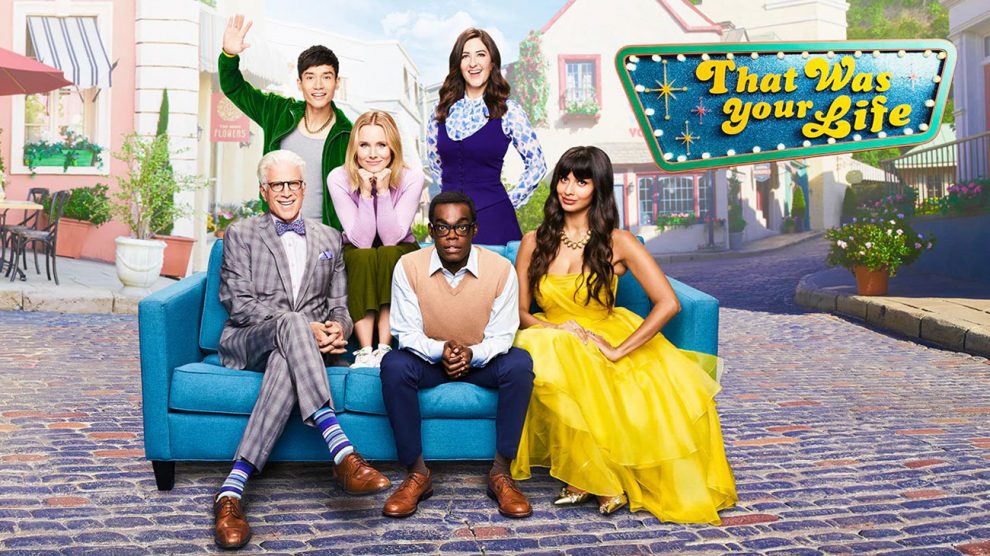
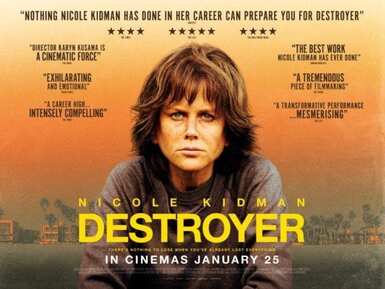
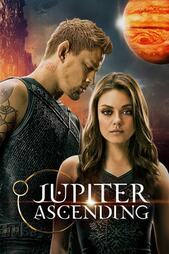
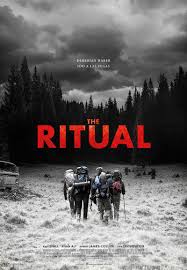
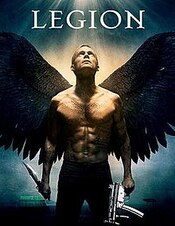
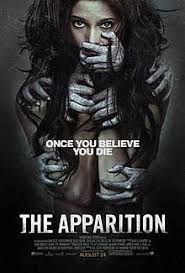
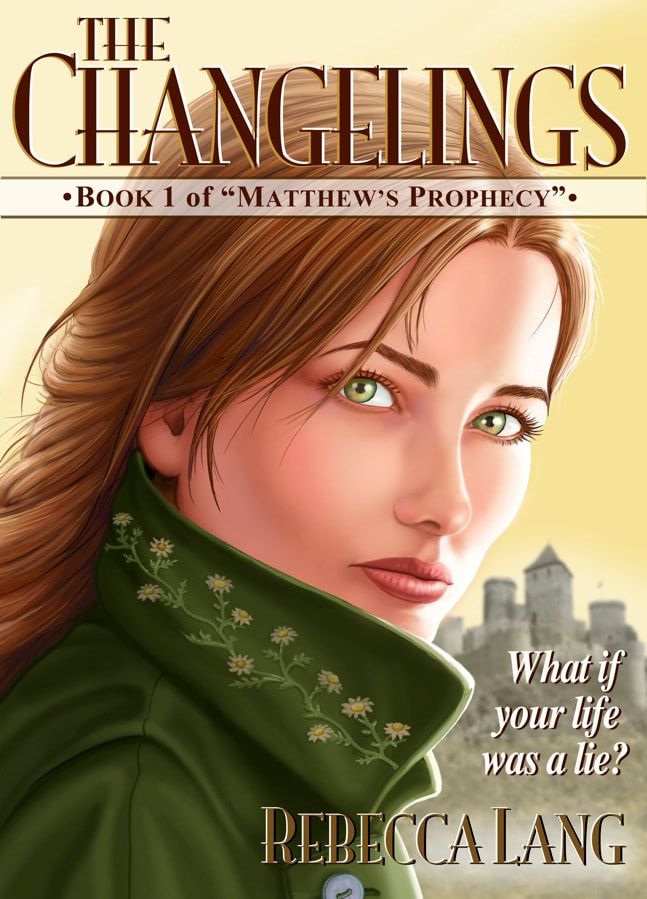
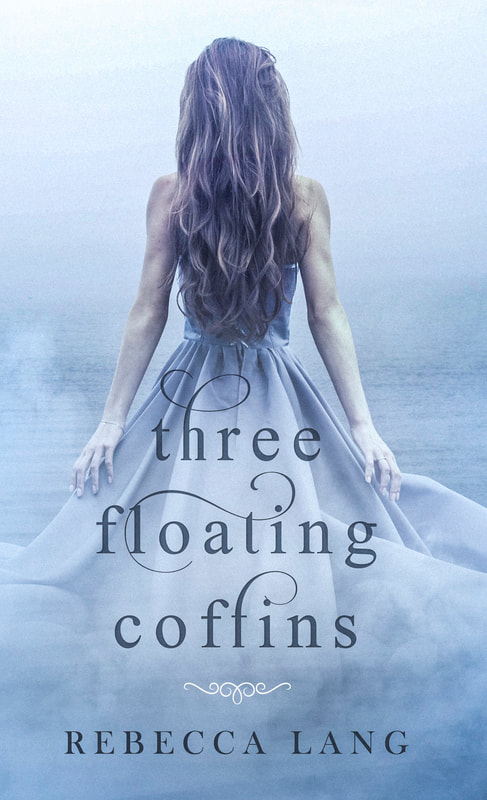
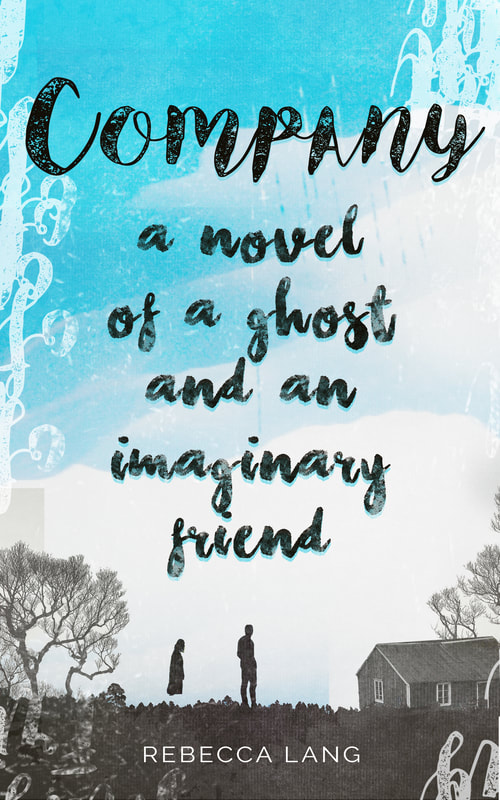
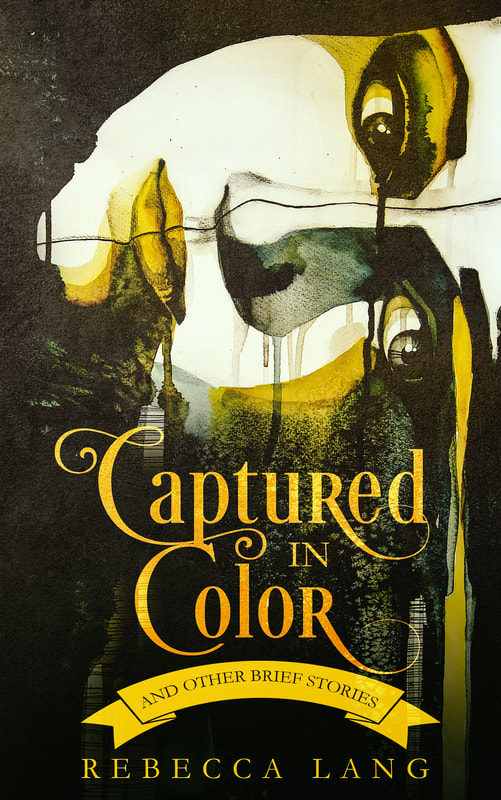
 RSS Feed
RSS Feed